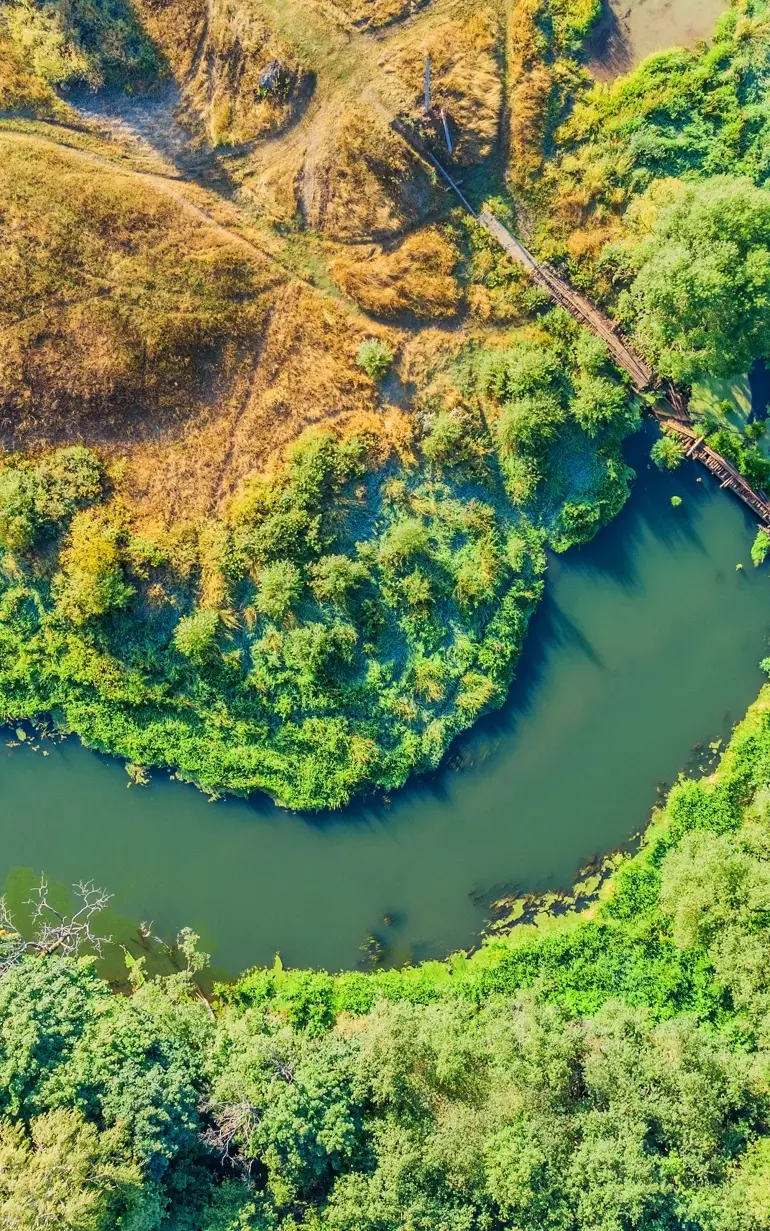
UNEP releases new SDG 6 progress reports at Stockholm World Water Week
The reports reinforce that integrated water resources management and healthy, functional ecosystems are essential for sustainable development.
New SDG progress reports from UNEP, with contributions from the UNEP-DHI Centre are being published at World Water Week, August 2024. The SDG 6 Progress Update Series provides in-depth analysis of progress towards the various SDG 6 targets and identifies priority areas for acceleration. The aim of SDG 6 is to ‘Ensure availability and sustainable management of water and sanitation for all’.
However, a global aggregated analysis of water-related ecosystem data shows 50 per cent of countries are ‘off track’ within the most recent five-year observation period. This equates to 90 countries having one or more water-related ecosystem type in a state of degradation.
Healthy freshwater bodies support millions of livelihoods and are essential for biodiversity
The 6.5.1 and 6.6.1 indicator reports focus on the progress of integrated water resources management (IWRM) and water-related ecosystems, respectively. The Progress on Water-related Ecosystems report highlights continued significant degradation of water-related ecosystems, which affects drinking water availability, limits sustainable crop irrigation and exacerbates climate change impacts. This deterioration also causes a decline in freshwater populations, including migratory animals that rely on healthy freshwater ecosystems for survival.
‘The SDG 6.6.1. data trends show water-related ecosystems are continuing to face significant levels of degradation, driven by pollution, dams, land conversion, over-abstraction and climate change.’
–UNEP report: Progress on Water-related Ecosystems (SDG Indicator 6.6.1)
SDG progress reports such as these play a crucial role in monitoring and guiding nations’ initiatives for sustainable development. The UNEP-DHI Centre leverages DHI’s technologies to support UNEP’s mandate and policy leadership within freshwater management. UNEP-DHI is responsible for supporting countries in monitoring and reporting on SDG indicators 6.5.1 and 6.6.1 and plays an important role in analysing the different data streams and writing the SDG progress reports. In addition, UNEP-DHI supported the collection of data for SDG indicator 6.3.2, on ambient water quality, by developing the SDG Water Quality Hub.
‘It is crucial that the validity of the data and consequently the findings are as strong as possible. As national in-situ data on freshwater ecosystem changes are inadequate on a global level, the SDG 6.6.1 indicator methodology incorporates data derived from Earth Observation to ensure temporally and spatially consistent global reporting.'
–Christian Toettrup, Senior Advisor, DHI Data & Analytics
The Progress on implementation of IWRM report highlights that by 2030, an estimated 3.3 billion people and the economies of 100 countries will face low resilience to increasing pressures, including those from climate change. Limited financial resources hinder the implementation of Integrated Water Resources Management, affecting institutional capacity, monitoring networks and the application of management tools. Employing IWRM approaches - characterised by cross-sectoral, participatory management at the basin scale - presents a significant opportunity to enhance resilience to climate change impacts.
‘The next critical steps for nations off track should be to mainstream IWRM into other sector actions, at all levels and across borders. Our experience in working with IWRM shows that by coordinating planning and investing in water management and infrastructure, nations achieve critical progress in sustainable water management.’
–Joakim Harlin, Chief Manager of the UNEP-DHI Centre
IWRM critical to achieving sustainable development
Despite high political commitments to sustainable water management, these have not been matched by adequate finance or action. Recognising IWRM's role in achieving other development goals, such as energy and food security, is crucial for accelerating sustainable development progress.
‘At the current rate, the world will not achieve sustainable water management until 2049 — 25 years from now.’
–UNEP report: Progress on implementation of Integrated Water Resources Management (SDG indicator 6.5.1)
The Progress on Water-related Ecosystems report calls for tailored policies to tackle the main drivers of freshwater ecosystem degradation. It notes that changes in river flow from climate change and land use affect global biodiversity and ecosystem health. While reservoirs increase permanent water, climate change disrupts seasonal water patterns, impacting ecosystems and water supply. Human activities like land clearance and urbanisation also harm water quality. Additionally, the report emphasises the critical role of mangroves in preserving freshwater resources and biodiversity.
Overall, the findings of the two reports underscore the interconnectedness of environmental changes and the urgent need for targeted policies and management strategies for sustainable and integrated management of water resources.
Access the full reports, related products and the indicator data portals
UN-Water: https://www.unwater.org/publications/sdg-6-progress-reports
IWRM Data Portal: https://iwrmdataportal.unepdhi.org/
Fresh Water Ecosystems Explorer: https://www.sdg661.app/
SDG Water Quality Hub: https://sdg632hub.org/
How can we help?
With our global network of offices, we make sure you get the right answers to your local needs. Tell us about your water challenges and we will get back to you.